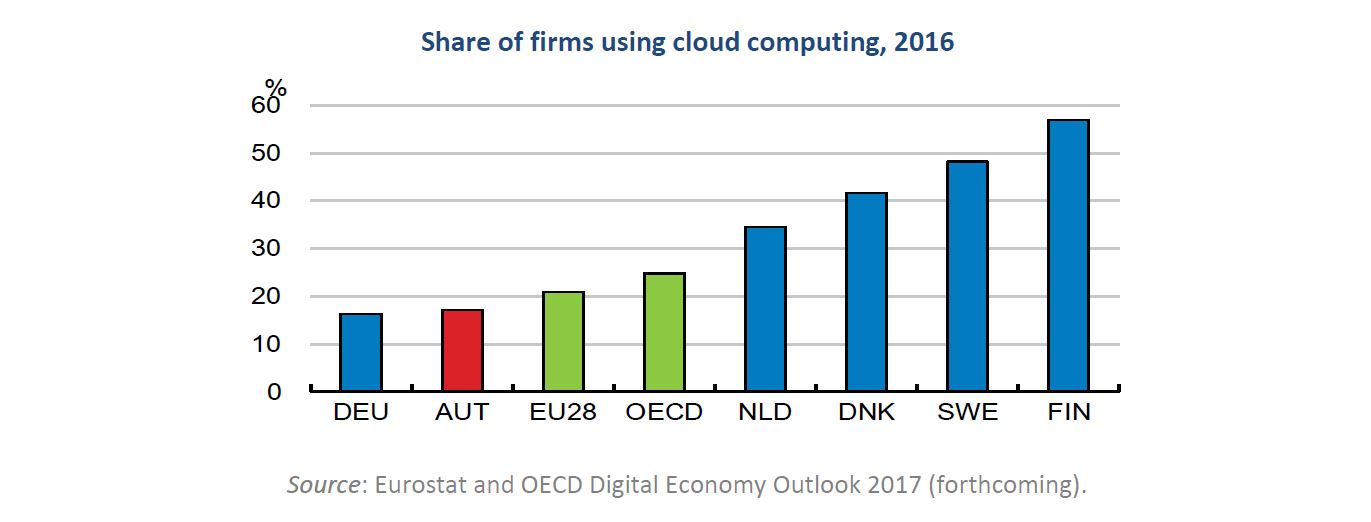Embracing digitalisation to boost Austria’s growth potential
by Rauf Gonenc and Volker Ziemann, Austria Desk, OECD Economics Department.
Digitalisation will redesign production processes and alter relationships between work and leisure, capital and labour, the rich and the poor, the skilled and the unskilled. It creates opportunities to boost inclusive growth and well-being by raising productivity, enhancing private and public services, and democratising information. However, digitalisation is inherently disruptive and raises concerns about a division of societies into winners and losers. Two questions arise for policy makers: how to ensure equality of opportunities in the race with technology and how to find the appropriate level of redistribution of the gains associated with digitalisation to preserve social cohesion.
Austria’s business sector is adapting to the global digital revolution, albeit at a slower pace than in the most advanced countries, especially among smaller firms (see Figure below). The adoption of information and communication technology applications by households is also uneven: while the young and highly educated swiftly follow global trends, older generations, individuals with lower education and immigrants lag behind. The authorities recognise the importance of helping people and firms to embrace digitalisation and have designed a “Digital Roadmap” around 12 guiding principles. Achieving the set objectives will require a transparent monitoring system with clear timelines and quantitative targets.

The ability of firm owners to fully embrace digitalisation and renew their business models should be further enhanced through awareness-raising and skills initiatives. On another front, stronger incentives, including financial ones, may be needed to encourage households to adopt e-government solutions. More generally, raising awareness for benefits arising from digitalisation and addressing potential challenges including by fostering trust and consumer protection are key ingredients for a successful and inclusive transition to the digital economy.
Many occupations may be automated in the near future. Others will see their tasks radically transformed. Researchers at the OECD and elsewhere have identified skills and tasks that are less likely to be affected and more likely to be complementary to digital technological change, notably activities requiring creative and social intelligence. Compared to the most digitised countries, such tasks seem to be less prevalent in Austria. Therefore, Austria should further develop basic digital skills and raise awareness of digital gaps. A wide-ranging education reform addresses these challenges and ought to be implemented swiftly. Finally, life-long learning solutions need to be developed further to upgrade skills of middle-aged and older workers.
Find out more:
OECD (2017), OECD Economic Surveys: Austria 2017, OECD Publishing, Paris.